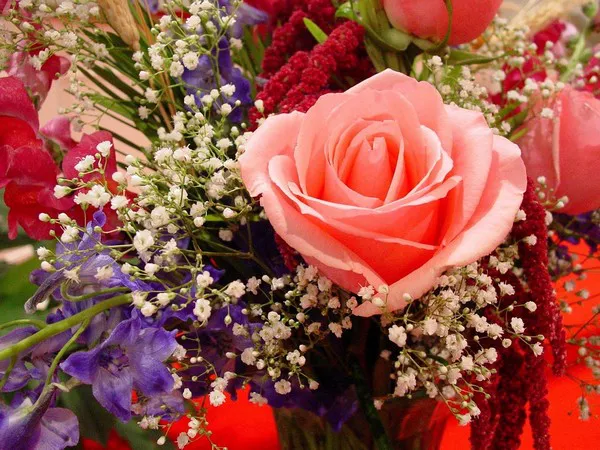Manila, Philippines – Shops in Dangwa, Manila, the Philippines’ primary source of wholesale flowers, are bracing for an increase in flower prices as the demand surges in the lead-up to All Saints’ Day. Recent typhoons have wreaked havoc on flower farms, affecting supplies.
Alvin Esteban, the manager of Ela-Mar Flower Shop, and Jinky Berdin, owner of Joji’s Flower Shop, have highlighted the impact of the typhoons on local farmers, causing a decline in the wholesale price of flowers. Esteban emphasized that the cost of flowers and arrangements will hinge on the availability of supplies from Baguio City, where many flower plantations were devastated.
“We are just starting to recover (after the COVID-19 pandemic), but recently, the flowers (prices) went up after flower plantations (in Baguio City) were destroyed,” Esteban explained, underscoring that pre-made flower arrangements are currently available for as low as P100 to P400.
He added, “We are really praying (to increase our sales). If the flowers are high and the consumers cannot afford to buy, the demand will also suffer. We will sell at reasonable prices as long as we don’t suffer losses.”
As All Saints’ Day approaches, there remains uncertainty regarding whether the volume of flowers will increase to meet the heightened demand. Many farmers in Baguio City have transitioned to growing vegetables, and Esteban noted that the supply of flowers will depend on those who still believe in flower cultivation.
In a separate interview, Jinky Berdin echoed the concerns about flower supply, stating that many greenhouses in Baguio and Benguet were ravaged by the typhoons, causing the wholesale price of flowers to fall from P380.
Berdin explained, “Last year, the volume of flowers was high. That was why, even though there was an increase in prices, it was not that big. If there is big demand but the supply is limited, that’s the time there is an increase in the prices.”
To cope with the impending surge in demand, Esteban and Berdin advised Filipinos to start purchasing flowers as early as October 27-28, as the peak demand for flowers in Dangwa typically commences from October 28 to November 1. The flower shops are committed to ensuring reasonable prices for their customers while managing the challenges posed by disrupted flower supplies.


